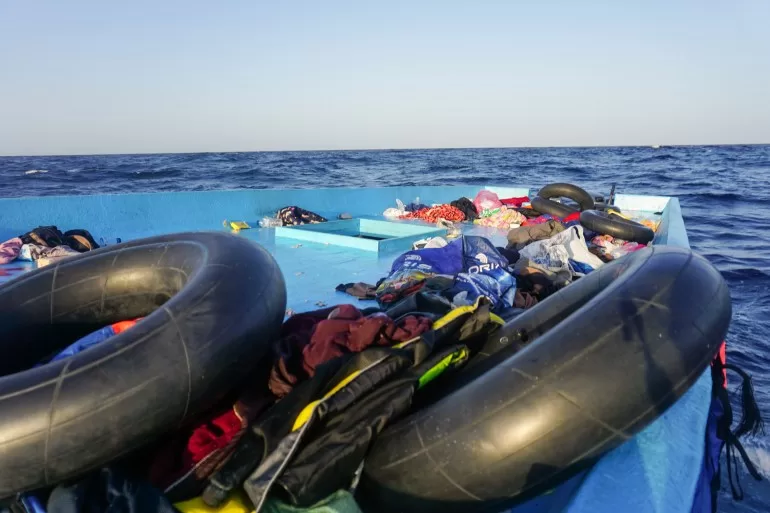She and 125 other refugees had left the Libyan coastal city of Sabratha in the dark of night, and her only goal was to get her sick mother to safety – away from the war back home, away from the freezing sea they had been drifting in for nearly two days with no food or water.
Then their boat was intercepted by German search-and-rescue vessel Humanity 1 – and Linda, her mother and the others were saved.
In the first chaotic hours after the rescue, she walked around the open deck, crying. Dressed in a black tracksuit with white stripes, she zigzagged between people queuing for a change of clothing and a long line of frozen survivors waiting to see the ship’s doctor.
![The blue boat [Nora Adin Fares/Al Jazeera]](https://www.occasionaldigest.com/wp-content/uploads/2024/03/The-blue-boat1-1708686236.jpg)
Some of them were wrapped in shiny aluminium emergency blankets. When they moved, the sound reminded her of opening candy bags when she was a little girl.
Grabbing one of the crew members, her eyebrows furrowed in an effort to hold back tears, Linda whispered in Arabic: “Can I please charge my phone? I need to send a message.” She held out an iPhone with a cracked screen and traces of salt dried onto it.
She had been out of contact for 22 hours, so her fiancé of three weeks – still stuck in a Libyan smuggling shelter – did not know if she was dead or alive.
When she was told she would have to wait a few hours, her tears spilled over.
